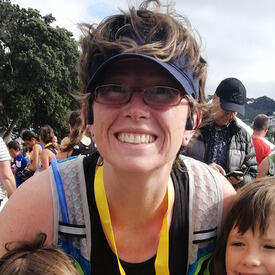We are pleased to announce that on March 4, 2025, an updated Rich Text Editor will be introduced in the MyFitnessPal Community. To learn more about the upcoming changes, please click here. We look forward to sharing this new feature with you!
Weight loss as a surgical resident

chesao
Posts: 11 Member
TL;DR Just looking for tips on how to lose/maintain weight loss when you can't adapt your eating habits naturally, have an unpredictable schedule and engage in a fairly unhealthy lifestyle (in terms of sleep/work/eating patterns, not nutritional content).
I have been experimenting on my own, but maybe there are some things that I haven't tried and I could benefit from other people's experiences.
I apologize if this has come up - trying to search key terms yielded a lot of threads related to being on the receiving end of operations, and it was difficult to filter through. I also apologize for the length of the post/run on sentences, just want to share what I'm working with so far, so that even if you're reading this as someone who isn't a surgeon (very specific, I know), you might have suggestions based on the whole picture.
I'm a medical student and (hopefully) entering into a surgical residency this summer. I have been attentive to what I eat over the past decade and after a lot of trial and error, I know what works best for me in terms of eating habits: backloading my day so that most of my calories are consumed after I get home, which in the past was around 4-5pm most of the time. I don't do IF, but generally if I'm busy during the day, I don't miss eating, whereas I do get pretty miserable in the evenings if I can't eat a large, filling and fairly carby meal. I can manage to get through the evening after eating less, so it's not a physical impulse that needs to be controlled, but the issue is that I can't study, as the whole time I am trying to work will be filled with invasive thoughts about food, even after attempting various techniques to adapt to and manage these thoughts. They aren't bothersome when I'm doing anything else, I just accept that I want something and move on, but I really can't split my focus when I'm trying to read textbooks, as it's a very difficult way for me to learn. Unfortunately, I've gotten to a point in my education where that's a must. Previously, I adapted my learning style to be more lecture/video/quiz-based, and it worked fairly well, but things are just too specialized and I have to look up a lot of research. I eat a varied diet, cook often and bake at least weekly, but find that I often require what some would call more "empty" calories as much as or more than I require "fuel," so I don't feel as though I can easily adapt the content of my meals, though I'm open to suggestions here (especially since I'm about to have stretches where I am doing 36-hour shifts every other day).
I LOVE surgery and being in the OR, but if I don't eat, I faint. Obviously a bad look, and one I work hard to avoid. Every time I'm on a surgical rotation, I find myself putting on weight because I have to eat adequate breakfast (I don't always get lunch breaks, so it has to be something that will get me through the day with no more than whatever power bar I can smuggle in a pocket, and even that I only manage to actually get to eat about 50% of the time because of all of the mandatory mask stuff), but if I don't eat decently for dinner, I cannot study in the evenings. I've played around with this over the past two years of my clinical rotations, and it doesn't seem to be something that I can get the hang of on my own. Not to mention the fact that I don't really get home at 4-5pm most of the time, so I do end up having days where I consume less than the recommended 1200 calorie minimum. It doesn't happen often, and generally balances out by the end of the week, but it /does/ lead to occasional binging behaviour that I don't experience otherwise.
Workouts are an iffy thing when my schedule's like this: I often stand all day, have *kitten* knees and lower back problems and though I have a stationary bike, I loathe it and if I bike too quickly or for too long, I wind up in too much agony to function very well. I've seen PTs, there's nothing that can really be done other than to keep doing what I'm doing, and I'm not physically "okay" for many of the physical activities that I actually find enjoyable. Or, maybe I am, but I risk tearing another ligament and winding up having to take time off, which is something that I'd really like to avoid if possible.
As I alluded to above, I also suspect that I'll be eating a lot more restaurant/premade food in the next few years, though I plan to try and avoid that as much as possible, but I never do very well with that.
This has gotten pretty long, so I'm just going to put it out there, and will happily answer questions if it'll help with your suggestions!
0
Replies
-
What is your question? I’m sorry, I didn’t follow.3
-
Got it. Lots of people have weird schedules but they still can lose, gain or maintain their weight by counting their calorie intake.
Food is fuel. Get rid of the idea that there is bad food that one must never eat. If you are fainting that means you are not eating enough. For heaven’s sake, eat a doughnut or grab an apple from the cafeteria if you need some quick calories.4 -
I am a UK anaesthetist. I have done the brutal work rotas with extended periods of 13+ hour shifts and periods of night duty.
I know what it’s like not to be able to leave theatre for a food / toilet break. (I don’t even have the Surgeon’s mythical “between cases” - that’s when I do my magic!!)
Top tips:
Eat when you get a chance - you don’t know when the next opportunity will be
Eat whatever you get a chance to eat - don’t stress about “clean” or “right”, CI<CO is the only thing that matters
If you can’t get to the canteen regularly, bring a packed lunch. If you have nowhere else to store it, keep it in your locker in the changing room in a small insulated bag and grab something out of it “between cases”.
And you don’t have to exercise to lose weight. But if you CAN do some targeted exercise you may find it improves your knees/ back / standing stamina and overall work performance.
Hope some of the above help.5 -
OT, but we read an interview where someone supposedly asked Queen Elizabeth what’s the best advice she she ever received. She is supposed to have responded,”If you see a bathroom, use it.”
I sincerely doubt QE was discussing toilet issues with anyone, but ever since, we’ve said “need to take a Queen Elizabeth”.
Somehow, that ought to apply here.
You need to take the opportunities for at least light snacks when presented. You’d be doing no one a favor passing out in surgery. And it sounds just miserable anyway. As @KNoceros says, preplan a wee bit.3 -
L1zardQueen wrote: »If you are fainting that means you are not eating enough. For heaven’s sake, eat a doughnut or grab an apple from the cafeteria if you need some quick calories.
I am fairly hypotensive at baseline - I've never fainted in an OR, but it's something that tends to happen to me on occasion regardless of whether I'm watching what I eat or not. (edit: I'm 5'4" & 135-140lbs is my preference, I just tend to yoyo between that and 160 every couple of years. I'm not in a dangerous zone, just low BP)
I do have the problem that I don't eat enough specifically related to OR days, but that's because we can be in those 13+ hour cases that @KNoceros mentioned and I don't get to leave the room. I keep snacks on me (usually at least a bar in my scrubs pocket), and right now, I cook at least 4 days a week, it's just unavoidable that sometimes I'm not going to be able to eat.
I don't ascribe to the notion that some foods are bad - I agree with you there for sure! Thank you!
Hope some of the above help.
Thank you as well! Definitely good advice, and much appreciated.
I'm intending on neurosurgery, which, like I said above, I would guess might be responsible for some of your long shifts, so I do expect it to be really important to keep that in mind.
I definitely don't focus enough on exercising - I try to do heel lifts and little core strengthening type things when I'm scrubbed (especially when I'm on ortho or in an angio suite and they bring out the lead), and take breaks to stretch, but physio always winds up stalling before I can get to a point where I can do anything fun. I don't mind the pain so much, I just really worry about tearing something that'll put me out of commission.
I'll try to look into some more subtle exercises that I could do in the OR to strengthen my muscles at baseline. It does seem like something that I should focus on a little more for my overall health! I do look forward to the day when the surgical ergonomics of the table will cater to my height and positioning, haha, but I should probably build some more healthy postural habits now so that I don't wind up needing @springlering62 in the next decade.
@springlering62 - What an adorable way to phrase it - I am going to have to try and make that stick here. One of the health centers in my city is named after the Queen E.
As I move up in seniority, I'll definitely be able to push back a bit more to get more snack breaks. For now, "miserable" just about sums it up, especially when I've been told to scrub and then get to pass the whole procedure standing there in a t-rex pose making sure I stay out of the way and sterile.0 -
A GP friend of mine always had muesli pars or protein bars in her pockets for situations such as these. As long as you include them in your tracking, then you shouldn't gain weight, but make sure you have something. Protein bars can be higher in calories than you expect, however should hopefully keep you going longer.0
-
Meal prep!! I am a night shift nurse. I like zipfizz to drink, protein bars, Premeir protein shakes are pre made and dont need to be refrigerated. I also have a snack on my drive home All planned and fit in my calories. Its tough when you go non stop for 12 hours.1
This discussion has been closed.
Categories
- All Categories
- 1.4M Health, Wellness and Goals
- 394.4K Introduce Yourself
- 44K Getting Started
- 260.5K Health and Weight Loss
- 176.1K Food and Nutrition
- 47.5K Recipes
- 232.3K Fitness and Exercise
- 442 Sleep, Mindfulness and Overall Wellness
- 6.4K Goal: Maintaining Weight
- 8.6K Goal: Gaining Weight and Body Building
- 153.1K Motivation and Support
- 7.8K Challenges
- 1.3K Debate Club
- 96.4K Chit-Chat
- 2.5K Fun and Games
- 3.2K MyFitnessPal Information
- 22 News and Announcements
- 1.2K Feature Suggestions and Ideas
- 2.3K MyFitnessPal Tech Support Questions




